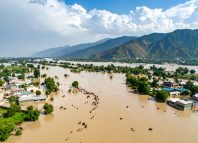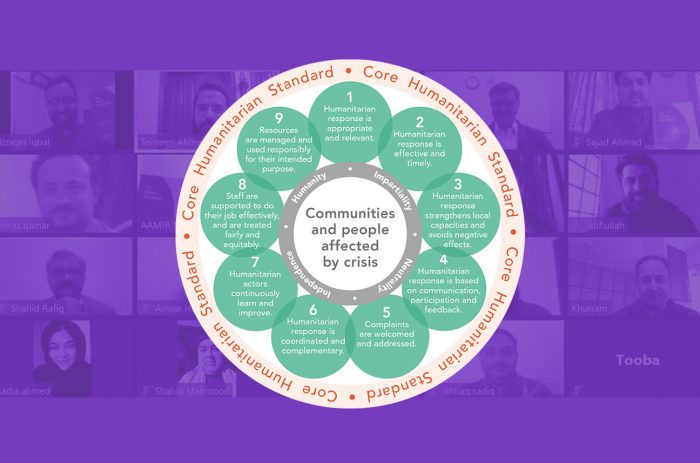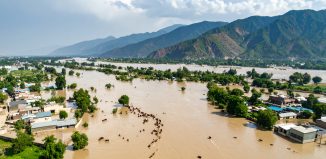Achieving efficient programming through improved Accountability to Affected Populations
In the humanitarian sector, the term ‘accountability to affected populations’ (AAP) means humanitarian actors making an active commitment to use power responsibly by taking account of, giving account to, and being held to account by the people they seek to assist[1].
By being more accountable to affected populations – increasing their participation and feedback in programs identification, design, delivery, and lesson learning – organisations are simultaneously ensuring quality program implementation and a more sustainable impact of their humanitarian and development interventions. This also allows communities to shape their own response and recovery and enable aid organisations to effectively deliver against its commitments to stakeholders, including the people they assist and those who provide resources to make that assistance possible.
Community World Service Asia collaborated with Concern Worldwide, to enhance and strengthen the capacity of its staff and partners in Pakistan on quality and accountability standards and its integration in organisational structures and programming. This will help to mainstream and build discourse around quality and accountability to affected populations (Q&AAP) in the humanitarian community. A series of trainings were jointly conducted to promote the inclusion of humanitarian standards on quality and accountability in all stages of Concern Worldwide’s project life cycle, such as design, implementation, monitoring and evaluation.
The first training, which was virtual in nature due to the COVID-19 pandemic, took place in January 2021. During this training, Concern Worldwide staff identified key initiatives such as Sphere Standards and CHS[2] contributing to Q&AAP and outlined the opportunities and challenges in implementing Q&AAP. Eighteen program staff members, representing program and support units (HR, Finance & Administration) of the organisation participated and learned how to design a Q&AAP learning action plan that was tailored to their working context. During the training, the staff also identified means and platforms to collaborate and coordinate with other partners to improve Q&AAP in the areas that they work.
The same training was conducted with various other partner organisations in the following months with a participation of thirty humanitarian practitioners from sixteen partner organisations in the country. The workshop introduced Q&AAP as a concept, and discussed the role of Sphere and how to use the revised Sphere Handbook 2018 Edition and apply its technical standards in the program cycle. The framework of Do No Harm, Complaint Response Mechanism (CRM), and Prevention of Sexual Exploitation and Abuse (PSEA) along with the Core Humanitarian Standard (CHS) were also discussed thoroughly.
The facilitator of these training sessions engaged the participants in interesting group activities such as case-study analysis, documentary screening followed by an open-call discussion session, and revision of each day’s learnings by the different groups. Participants showed great interest on particular modules such as, ‘What is Sphere – the Handbook and Sphere & CHS Guidelines in response to COVID-19’.
One of the participants recommended that “the testing measures in the Sphere Handbook need to be updated as they overlap with each other when applying in field in times of a crisis and that the nature, and magnitude of a disaster varies from area to area so applying one Sphere Standard to all of it is not possible”.
The facilitator then introduced them to the changes that took place in the Sphere Handbook since 2018 and how the participants can apply the updated frameworks in their fieldwork.
A profound discussion took place between the facilitator and the participants on the similarities and differences of COVID-19 and its impact on other pandemics, like Ebola that emerged in Africa some years ago. The facilitator familiarised participants with the chapters in the Sphere Handbook that were more relevant in response to the COVID-19 pandemic such as “WASH and Health”.
“It was an overwhelming experience as it was important for us to learn whether the Sphere Protection Principles were applicable in the context of COVID-19. We faced challenges and queries from communities while responding to emergencies. However, our understanding of the Sphere standards and accountability to affected people has definitely been enhanced. This will allow us to respond more effectively and efficiently, ensuring our programs are designed and implemented to fulfill the needs of the communities we are working with,” shared Arbab Saeedullah, a staff representing one of Concern Worldwide’s partner organisations in Pakistan.
[1] https://www.iom.int/sites/default/files/our_work/DOE/humanitarian_emergencies/AAP/two-pagebriefonaap.pdf
[2] The Core Humanitarian Standard on Quality and Accountability sets out nine commitments for humanitarian and development actors to measure and improve the quality and effectiveness of their assistance. The CHS places communities and people affected by crisis at the centre of humanitarian action.







